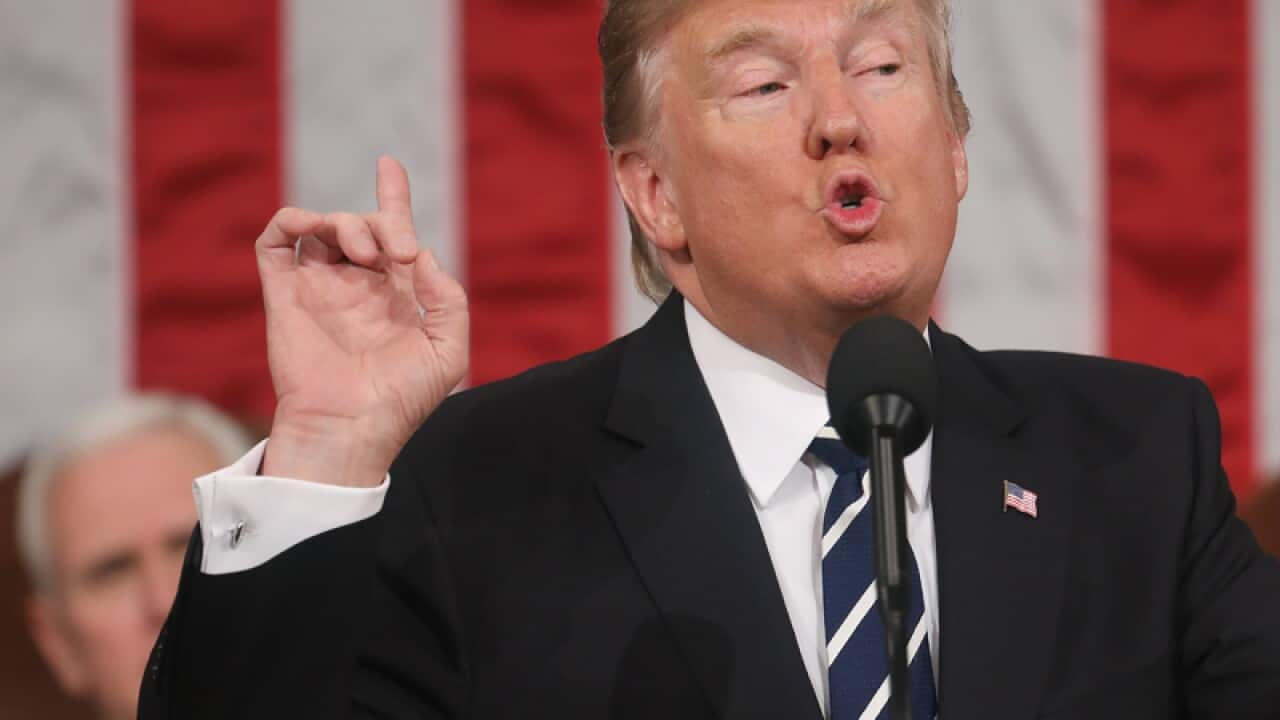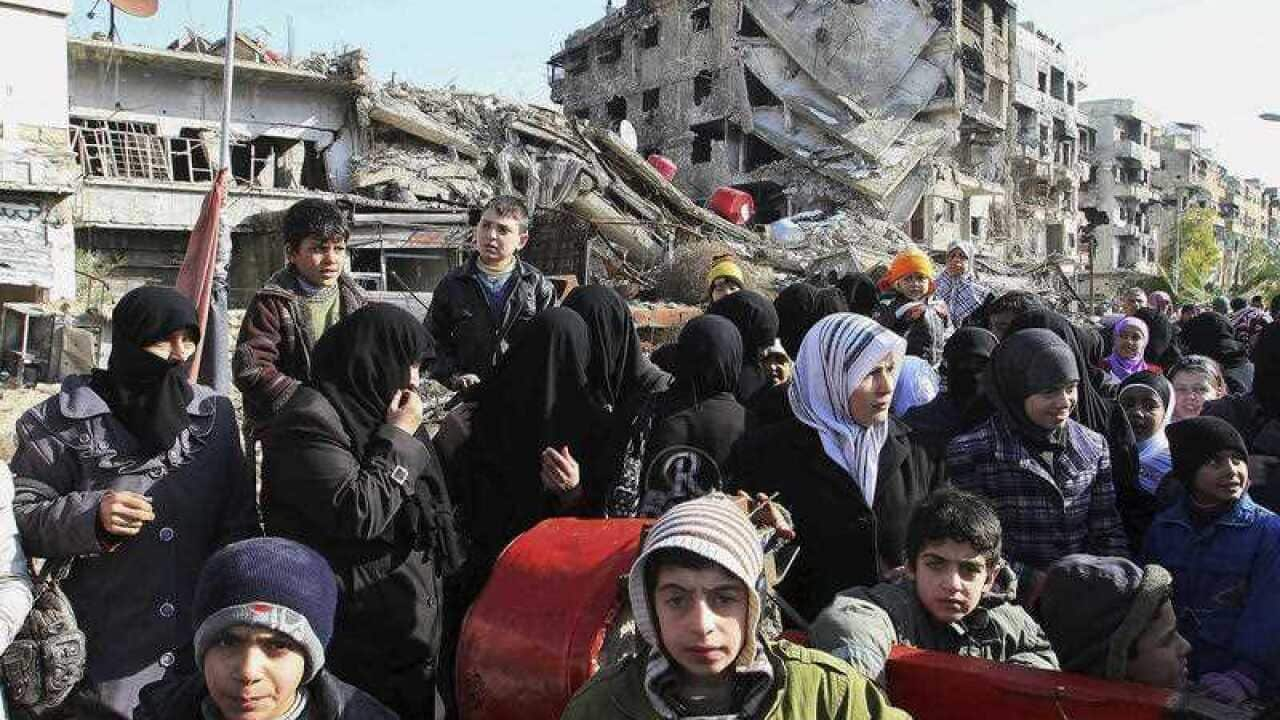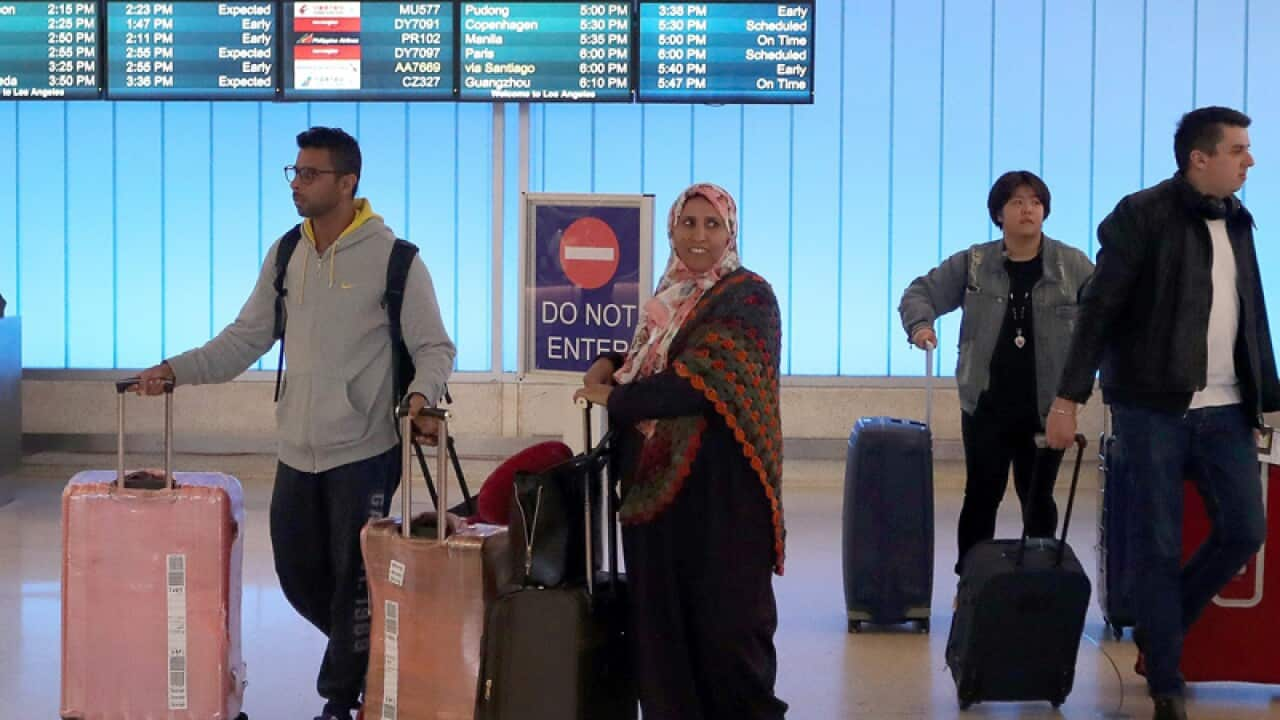Early vote counts and exit polls from Wednesday's election in the Netherlands indicate that the predicted surge from anti-Islam, euro-skeptic MP Geert Wilders has failed to materialise.
Prime Minister Mark Rutte’s People's Party for Freedom and Democracy (VVD) has secured the most seats from the multi-party vote, claiming 33 seats, down from 40 last year.
On current projections, Wilders’ Party for Freedom (PVV) is expected to win 20 seats.
While support for the Labour Party has collapsed, minor parties such as the centre-right Christian Democratic Appeal (CDA) and centrist-liberal Democrats 66 (D66) have taken 19 seats each.
The Green Left has also fared well from Labour’s demise, taking 14 seats.

Source: SBS
1: Dutch voters turned their backs on Wilders, opted for the CDA
Polling over the past 12 months showed Geert Wilders was expected to receive as many as 32 seats in the Dutch Parliament, but in recent weeks his support appears to have faded.
Once predicted to come in first place, he has now come in 13 seats behind the centre-right VVD.
While the results net him an extra five seats, it’s nowhere near the “patriotic spring” Wilders had called for.
The result was “a victory, but not the victory we hoped for,” he said.
Wilders voters appear to have turned to the centre-right Christian Democrat Appeal which had a strong night, taking 19 seats.
"Everyone sees this as a defeat for populism and the radical right," said Dr Stijn van Kessel.
"But it should not be forgotten that the three parties which have run a campaign partly or largely based on nationalistic appeals and protection of culture - VVD, CDA, PVV - are set to win around 72 seats combined."
"There still is a bit of a 'shift to the culturally conservative right' - to phrase it in a popular way."
The CDA is comparable to Angela Merkel's Christian Democratic Union in Germany, Dr Carolien van Ham says.
“They are actually a very centrist party, so they would be rather like the Coalition, if you need an Australian comparison,” she said.
“So for right-wing voters, if you were a bit unhappy with the VVD, and you don’t like the extreme right, then the CDA is your party basically.”
Unlike Wilders, the party is not opposed to European integration.
They are opposed to expanding access to euthanasia and support limiting the recreational drugs and prostitution, for which the Netherlands is famous.
“They were against gay marriage, but that ship has sailed,” Dr van Ham said.
“Ideologically they are actually quite close to the VVD, which is actually good news for the VVD - their first calls in negotiations will probably be to the CDA and the D66.”
2: The Labour Party has been decimated, VVD loses ground
Results have not been finalised, but the biggest loser of the night is already clear – the Labor Party has gone from 38 seats in 2012 to just nine.
"PvdA (Labour) is just a disaster, a real historic low for a party which is part of the traditional three-party families," Dr van Kessel said.
"VVD didn't under-perform at all; a large loss, but still much better result than expected," he said.
Dr van Ham and Dr van Kessel say that both parties paid a price for governing.
The centre-right and centre-left parties have been governing in coalition since the 2012 election, but they haven’t been popular.
"[Labour] supporters blamed them for governing with the VVD, whilst VVD supporters are clearly more forgiving," Dr van Kessel said.
“They’ve done really well economically, but there’s been some disgruntlement with how they’ve dealt with a Ukraine EU referendum, the crisis in Greece and the immigration issue,” said Dr van Ham.
“They’ve been through some really tough times and they’re paying the price for that.” While the VVD appears to have lost eight or nine seats, the Labour Party is currently projected to take just nine seats – down from 38 at the last election.
While the VVD appears to have lost eight or nine seats, the Labour Party is currently projected to take just nine seats – down from 38 at the last election.

Coming in first place means Mr Rutte is highly likely to remain the Netherlands' Prime Minister. Source: AP
“They’ve never lost this much, the Labour Party, so I think they will definitely go and do some soul searching about where to take the party in the future,” Dr van Ham said.
Previously the country’s second largest party, Labour will now be the seventh-largest party in parliament.
Dr van Ham says the centre-left party suffered from being a junior partner in coalition with Rutte’s VVD.
“If you’re promoting social change but you’re governing with conservative liberals, it can be difficult,” she said.
SBS joins Mark Rutte's election night party
She says Labour parties around the world – from America and Europe to Australia – are struggling to square their liberal economic and immigration ideals with a working class voter base feeling the pressure of wealth inequality and globalisation.
“It’s hard to develop a coherent platform to appeal to those voters,” she said.
In comments after results came in, the party’s leader, Lodewijk Assche, said he doubted the party would be part of any governing coalition.
3: Minor parties have risen at the expense of the major parties
While early results show a comfortable lead for Prime Minister Rutte’s VVD, the party has still lost seven seats.
The Labour party may have lost more than 28 seats since the last election.
But their losses have seen gains by other parties.
While Wilders appears to have picked an extra five seats, the CDA has gained six or seven, and the D66 has also picked up an extra six.
But the biggest boost has been for Jesse Klaver, leader of the Green Left, who appears to have won an extra 10 seats, on top of the four the party won in 2012.
Previously a minor party, it now appears to have five more seats than the Labour party.
Dr van Ham says that the Green Left and D66 marketed themselves as an opposition force to Wilders.
“They had a really compelling story against Wilders, a story about diversity and inclusion, and they did well out of that,” she said.
Green Left European Parliament party chair Kathalijne Buitenweg was joyous as results came through.
“We’ve never had such great results, we quadrupled our seats, and I’m incredibly proud of the party,” she told Dutch broadcaster NOS.
Other minor parties have also seen gains.
READ MORE

Who's who in Dutch politics
An animal justice party now appears to have five seats, up from two.
A party for senior citizens may have also doubled its representation to four seats.
A Dutch-Turkish pro-immigrant party looks likely to enter parliament for the first time with three seats.
“Parties which take climate change seriously have doubled their seats,” tweeted Marianne Thieme, leader of the Party for Animals.
The Socialist Party, which picked up 15 seats in the last election, appears to have bucked the minor party trend with the loss of one seat.
4: Mainstream parties in France and Germany will be buoyed
After the success of euro-skeptic parties in European parliamentary elections and the shock Brexit vote last year, the win for pro-EU Prime Minister Rutte is welcome news for supporters of the embattled European project.
“I have had lots of European colleagues on the line,” Mr Rutte said following preliminary results.
“This is an evening where the Netherlands, after Brexit and Trump, said ‘That’s enough of the wrong sort of populism’.”
SBS asked a grinning Mr Rutte if he had saved the European Union – but knocked back the suggestion with characteristic Dutch modesty.
“No, that’s too big,” he said. But Dr van Ham cautions against viewing the Dutch election solely through the Dutch-Brexit-Europe prism – domestic issues were also at play.
But Dr van Ham cautions against viewing the Dutch election solely through the Dutch-Brexit-Europe prism – domestic issues were also at play.

Rutte pleaded with voters ahead of the election not to let the Netherlands become another Trump or Brexit. Source: ANP
“I think we’re overestimating the contagion effect,” she said.
“The French election will be decided mostly on domestic matters. Regardless of what happened in the Dutch elections, Marine Le Pen is popular in France and she might win.
“Just as in Germany the Labour Party and the Christian Democrats are popular, so it’s unlikely the far-right will win.”
But the Dutch voters turning their backs on Wilders is still being taken as a positive sign for other leaders.
“Good news from the Netherlands. Europe remains colourful - and this includes Orange,” tweeted German Foreign Minister Sigmar Gabriel.
German Chancellor Angela Merkel has also congratulated Rutte on the result.
“I look forward to further good cooperation as friends, neighbours and Europeans,” she said in a call to the prime minister.
5: Forming a government could still take weeks or months
With the sheer ideological range of minor parties now well represented in parliament – from the Green Left to Wilders’ PVV – negotiations could take weeks or even months to conclude.
Any coalition is likely to require at least four parties.
Observers are already speculating about possible coalitions, including a potential centre-right government with the VVD, CDA, D66 and Christian Union.
“It’s definitely going to take a while to negotiate the coalition. Then again, I think the VVD, CDA and D66 could reach an agreement pretty swiftly,” Dr van Ham said. Squaring the conservative policies of the Christian Union with the progressive approach taken by the D66 could be difficult, however.
Squaring the conservative policies of the Christian Union with the progressive approach taken by the D66 could be difficult, however.

Party leaders from 9 of the leading 28 parties pose for a photo ahead of a final televised debate. Source: Robin van Lonkhuijsen ANP POOL via AP
Such an agreement would also likely provide only a narrow majority – if any majority at all.
“You want to aim for comfortable majority – three, four or five extra seats,” Dr van Ham said.
If numbers for the Green Left strengthen, a broader and more centrist coalition may have to be considered.
“That’s going to be a bit tougher,” Dr van Ham said.
Green Left leader Jesse Klaver has said that a centre-left coalition would be “difficult” considering the VVD’s big win.
















